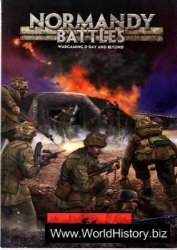Heroic epics or Heldensagen have existed in many cultures from antiquity to our own days. Few attempts have been undertaken so far to compare these epics systematically and from various perspectives or even to establish a ‘‘typology’’ of heroic epic (notable exceptions include Bowra 1952; Hatto 1980; see also Hatto 1991; Hainsworth 1991; Ulf 2003b). Nor has anybody undertaken a systematic effort to determine to what extent heroic epics reflect history or, more generally, what kind of historical information, if any, we can retrieve fTom such epics, and what methodologies we can use to achieve this. Understandably: each epic is imbued with, and thus reflects, the specific conditions of the culture that produced it, and adequate interpretation is impossible without thorough familiarity with that culture. Whoever ventures into fields not his own risks censure of the kind suffered by C. M. Bowra at the pen of Klaus von See (1978: 22 n. 55): ‘‘The fat volume has deficiencies; in particular it lacks elementary knowledge of facts in the field of Germanis-tik’ (my free trans.). In this chapter, I will make an effort, based on a sample of three ancient cultures, to understand the relationship between epic and history in antiquity. For this purpose, I cannot avoid using comparisons, even beyond the realm of the ancient world. I appeal to the tolerance of all specialists into whose turf I trespass.
My approach requires little justification. The evidence available in antiquity is often incapable of providing sufficient answers to many of the questions historians need to ask of it. How, for example, can we determine how well or badly oral poetic tradition preserved over many centuries the memory of events that may lie at the core of the Trojan War story and thus are perhaps reflected in the Iliad - if no record of these events survives outside the epic? How can we decide where in history to locate the ‘‘social background’’ to the epic action if, to use the same example, the Iliad is itself the earliest extant document offering a detailed and lively description of any Greek society? In the latter case, we can at least examine the consistency of the epic's evidence and its relation to conditions attested at other times. In the former case this method leads nowhere.
Later epics (such as the Nibelungenlied, the Song of Roland, or Serbo-Croatian songs) provide a better base for analysis. As we shall see in section 3, independent historical evidence exists both about the events at the core of these epic traditions and about the social conditions at the time of these events and at the time when the epics received their final form. Comparison between such external evidence and the epics’ internal evidence permits us to perceive correspondences and differences and to establish general patterns.
Not that such patterns can simply be transferred to the ancient world. Comparison cannot provide definitive answers to our questions about ancient epic. But it can stimulate our thinking, reveal possibilities or even probabilities, and conversely help us understand what is improbable. The combination of such insights with others, reached through different approaches and methodologies, will enable us to formulate reasonably plausible answers to our questions.
As far as early Greek epic is concerned, the questions posed above continue to be hotly debated. I will analyze them in the second section of this chapter. The same questions are being asked for Near Eastern heroic epic, which seems fraught with even more uncertainty and offers a much smaller textual base. In the first section, I will briefly discuss one example, Sumerian epic.
Roman heroic epic seems an entirely different matter. The Aeneid, the earliest fully surviving representative of the genre, is a literary masterpiece, composed not in the early phases of an emerging civilization but at its height. It is the heir of long literary, not oral, traditions and consciously competes with earlier models, both Greek and Roman. Although elaborating on the historicized myth of Rome’s earliest ancestors and beginnings, it shares with the early history of Rome by Virgil’s contemporary, Livy, an abiding interest in, and critical distance from, the authors’ own time. The historical questions we ask of Augustan (as of early imperial) epic are thus very different fTom those we wish to answer about Homer’s - although, as we shall see, to some extent the historical relevance and timeless significance of these late epics are based on concerns that are similar to those of their early ancestors. More properly “historical epics’’ were a specialty of Rome as well. Ennius’s Annals and Lucan’s poem about Caesar’s civil war (De bello civili) offer good examples, and the question of the treatment of history here is again very different from that in ‘‘mythical epics.’’ I shall discuss these questions in the fourth section.




 World History
World History









